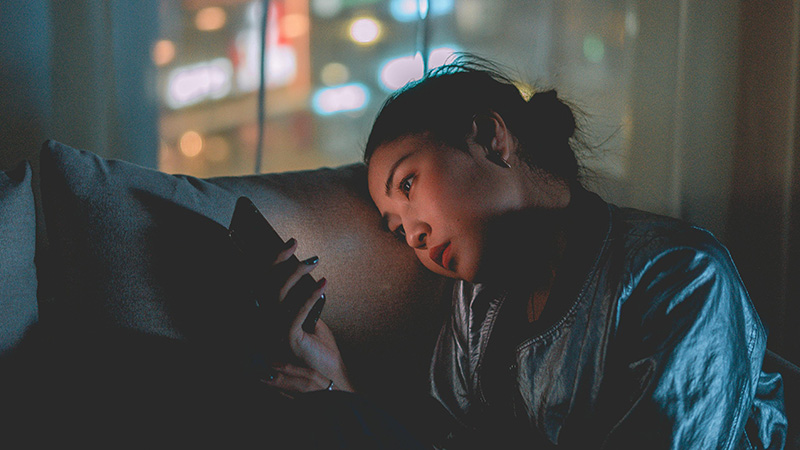You have just returned home after a long day. As I collapse into bed, exhausted, my phone lights up. It’s a new post about political candidates from your favorite news blog, and you can’t resist. Once you start scrolling, you’ll be greeted with an endless stream of overwhelming content.
Election season brings a flood of information: debates, political ads, news reports, and, unfortunately, an ever-increasing amount of pseudo-news.
Dr. Brian Ott and Dr. Elizabeth Dudash Buskirk, professors of communications, media, journalism, and film at Missouri State University, shed light on pseudonews and its impact on our mental health.
Understanding fake news
In today’s digital age, distinguishing between news and non-news is no longer as easy as it used to be.
“Pseudo news refers to opinions and commentary that masquerades as news, but is not actually news. As the consumption of professional news declines, political “opinions” flood the digital world, and pseudo-news “It’s causing an increase,” Ott said.
“As a result of this increase, much of what people believe to be news is just opinion, contributing to the polarization of public debate,” he added.
Dudash-Buskirk points out that polarization creates an intensity that promotes unhealthy behaviors such as doomscrolling and increased anxiety and confusion.
“We get very confused by the categories we are given, and we are made to think that something is true or factual,” she says.
In this way, people become increasingly radicalized by the information they consume, and our mental health suffers.
river of mud
Our digital world is like a huge river of information.
Ott calls it a “river of mud,” where everything flows in the same vein, from news and selfies to conspiracy theories and political commentary.
“The biggest problem with this undifferentiated content is where most of us get our information today. We scroll through social media, click on links, and make opinion-based comments. and political interpretations are often mistaken for legitimate news,” he said.
He adds one more thing to note about “rivers of mud.” That is, we can only partially see it.
Everything we do online, whether it’s liking a post, sharing an article, or commenting on a video, feeds into algorithms that shape the content you see next.
This means that two people sitting in the same room receive different streams of information.
“Algorithms adjust what we see based on our past behavior, reinforcing our beliefs and trapping us in filter bubbles,” Ott says.
“For one person, the river may be full of liberal anger; for another, it may be full of conservative anger. It feels so polarized in political discourse right now. No wonder.”
Ott points out that this is not just about being exposed to different perspectives. It’s about being continuously fed content designed to keep us in a constant state of anger.
This feeling is exhausting and has a significant negative impact on our mental health.
“The more time you spend online, the worse you feel, but social media is designed to be addictive,” Ott says.
Escape from the echo chamber
So how can you avoid this trap and protect your mental health?
According to Ott and Dudash-Buskirk, follow these four steps:
Be intentional about protecting your mental health by limiting your social media use and screen time. Rely on trusted, reputable sources rather than social media, where news and fake news are often indistinguishable. Look for multiple perspectives to get a comprehensive perspective on current events. It encourages you to think critically by actually having conversations with people who have different opinions.
A call for change
“If enough people recognize the dangers of fake news and toxic online environments, there could be a collective movement for change,” Ott said.
He believes news organizations should prioritize quality over sensationalism, but that requires the public to demand better.
“In a world where facts are increasingly difficult to discern and emotional manipulation is rampant, the fight for a healthier information environment feels more important than ever,” Ott said. “The future of our mental health and civil discourse may very much depend on it.”

